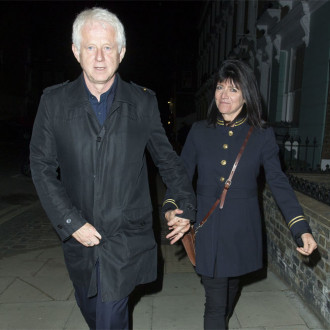Richard Curtis 'respects' people who don't like his films
By Bang Showbiz in Movies / TV / Theatre on 07 September 2020
'Love Actually' creator Richard Curtis has revealed that he has ''a lot of respect'' for those who don't like his films, but has urged critics to take positive action themselves.

Richard Curtis has ''a lot of respect for people'' who do not like his films.
The 63-year-old screenwriter has penned a number of hit romcoms, such as 'Four Weddings and a Funeral', 'Notting Hill', 'Love Actually' and the first two 'Bridget Jones' movies but accepts that his work is not to everyone's taste, although he would always advise critics to look at themselves too.
Speaking in the latest Big Issue magazine, he said: ''I've got a lot of respect for people who don't like my films. As long as, in their own lives, they're trying to change things rather than simply trying to knock things down.''
Critics of Curtis' films have accused them of lacking diversity and featuring what could be seen as sexist plotlines, including in 'Love Actually' where the fictional British Prime Minister David (Hugh Grant) romantically pursues younger employee Natalie (Martine McCutcheon) - and he recently suggested that he would write films differently in response to campaigns such as the Black Lives Matter movement.
Speaking in July, Richard said: ''I think I would write different movies now. Things do change and that is what is exciting about a moment like this.
''We are all re-calibrating, we are all thinking about things in different ways. We have a really impatient younger generation who's focusing on things that I never focused on. You know, I'm hopeful.''
Richard recently backed the Millionaires for Humanity campaign as he asked to be taxed more to help support the UK economy as the nation recovers from the coronavirus pandemic.
Curtis - who co-founded charity Comic Relief with Sir Lenny Henry - has signed a letter calling for millionaires to all pay more tax and has been joined by the likes of Disney heiress Abigail Disney and Ben and Jerry's co-founder Jerry Greenfield.
They wrote: ''As Covid-19 strikes the world, millionaires like us have a critical role to play in healing our world.
''No, we are not the ones caring for the sick in intensive care wards. But we do have money, lots of it. Money that is desperately needed now and will continue to be needed in the years ahead, as our world recovers from this crisis.''
Contactmusic
Suggested

Leisure Festival - Dreamland in Margate
On the same day that Glastonbury welcomed back Margate's adopted sons, The Libertines, Margate itself put on it's very own Leisure Festival as it...

Pretty Fierce talk to us about collaborating with Doja Cat, emetophobia, arena tours and staying "true to yourself" [EXCLUSIVE]
Sheffield's very own all girl group Pretty Fierce are still on a high after the recent release of their debut single - 'Ready For Me'.

Will Varley & Jack Valero - The Astor Theatre Deal Live Review
Three nights before the end of his current tour Will Varley returned to his home town of Deal to delight a sold out crowd in The Astor Theatre.

WYSE talks to us about her "form of synaesthesia", collaborating with Radiohead's Thom York and the prospect of touring with a band [EXCLUSIVE]
With only a few days to go before Portsmouth based songstress and producer WYSE releases her new single, 'Belladonna', we caught up with her to find...
Advertisement

Bay Bryan talks to us about being a "wee queer ginger", singing with Laura Marling and being inspired by Matilda [EXCLUSIVE]
Colorado raised, Glasgow educated and Manchester based Bay Bryan is nothing if not a multi-talented, multi-faceted artist performing as both...

Keelan X talks to us about staying true to "your creative vision", collaborating with Giorgio Moroder and being "a yoga nut" [EXCLUSIVE]
Former Marigolds band member Keelan Cunningham has rediscovered his love of music with his new solo project Keelan X.
![Luke De-Sciscio talks to us about having the courage to be yourself, forgiving that which is outside of one's control and following whims [EXCLUSIVE] Luke De-Sciscio talks to us about having the courage to be yourself, forgiving that which is outside of one's control and following whims [EXCLUSIVE]](https://images.contactmusic.com/images/home/homepage/luke-de-sciscio-abof-a.jpg)
Luke De-Sciscio talks to us about having the courage to be yourself, forgiving that which is outside of one's control and following whims [EXCLUSIVE]
Wiltshire singer-songwriter Luke De Sciscio, formally known as Folk Boy, is set to release is latest album - 'The Banquet' via AntiFragile Music on...

Annie Elise talks to us about the challenges a female producer has to face and "going through a year of grief and sickness" [EXCLUSIVE]
Electronic music pioneer and producer Annie Elise says that the release of her first EP - 'Breathe In, Breathe Out' feels "both vulnerable and...
Advertisement
Movies and Trailers

Trash Movie Review
With elements of political corruption and life-threatening prejudice, this film has a rather much darker...

About Time Movie Review
Curtis has said he may stop making movies, and on the basis of this film...

One Direction: This Is Us Movie Review
Filmmaker Spurlock (Super Size Me) is known for his investigative wit, but there's none of...

About Time Trailer
Tim Lake is 21-years-old and not exactly what you call an expert in the art...

War Horse Movie Review
Spielberg takes the hit stage play (based on the Michael Morpugo novel) to the big...

The Boat That Rocked Trailer
Legal radio stations in 1960's Britain weren't exactly what you'd call interesting to listen to...
Advertisement

The No.1 Ladies’ Detective Agency Trailer
Watch the trailer for The No.1 Ladies’ Detective Agency. Jill Scott plays Precious Ramotswe in...

Notting Hill Movie Review
Julia Roberts is Julia Roberts - almost - in Notting Hill, a well-crafted romantic comedy...

Love Actually Movie Review
I can only presume that the British calendar is so uniquely screwy that it allows...









